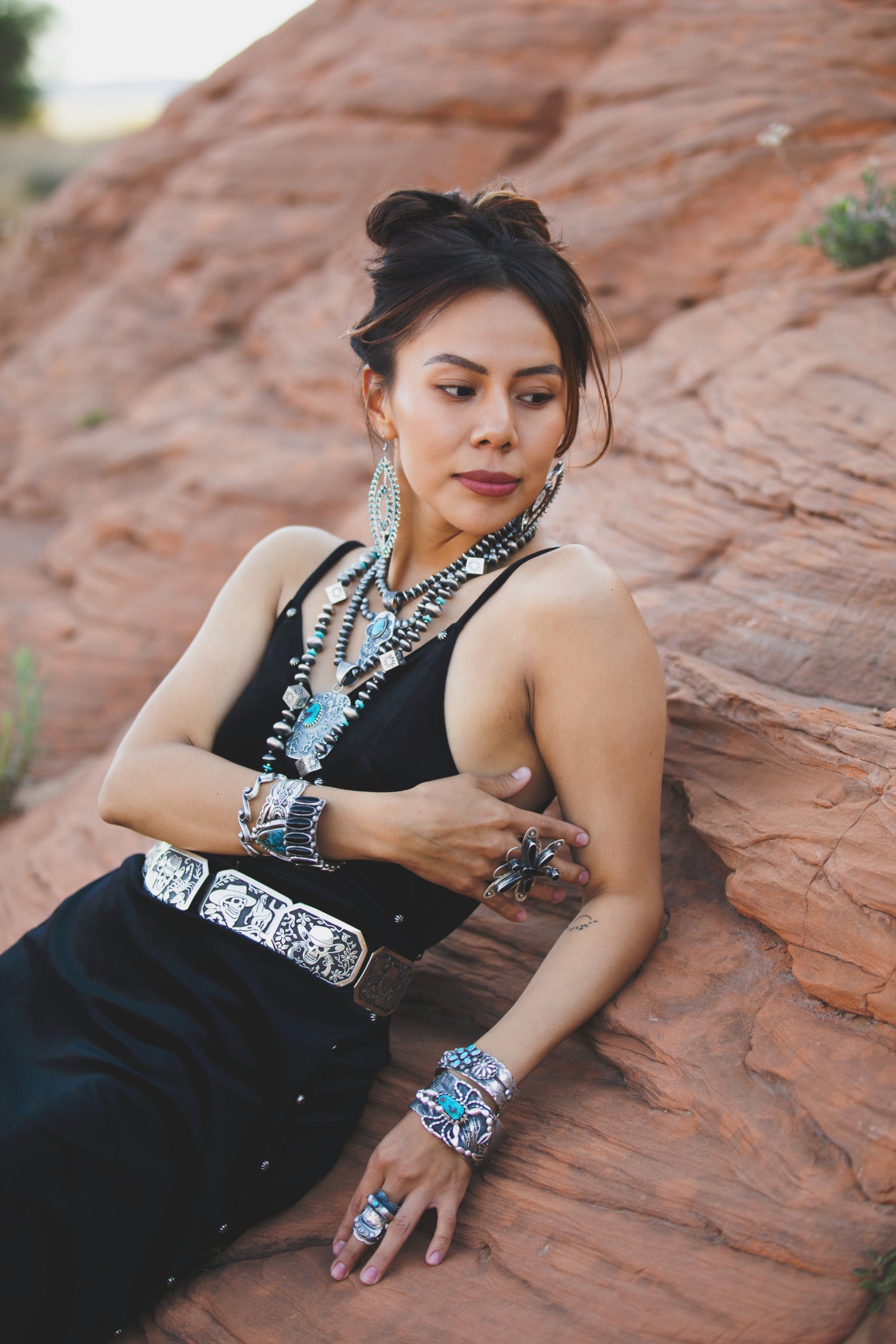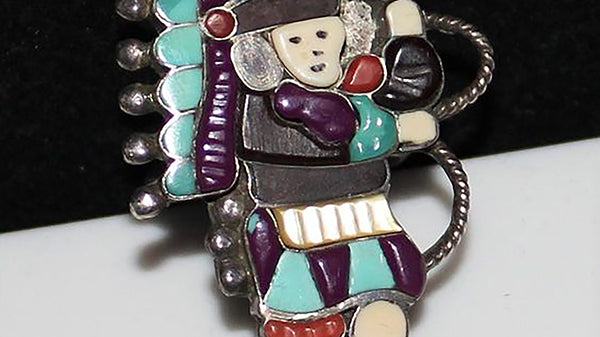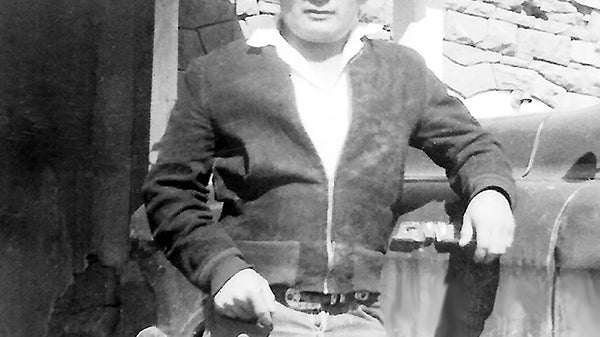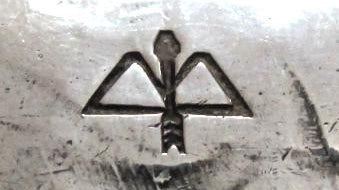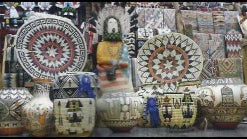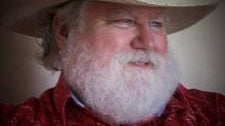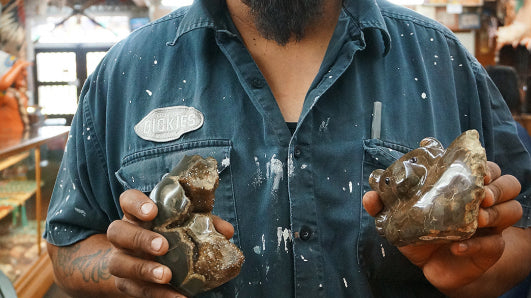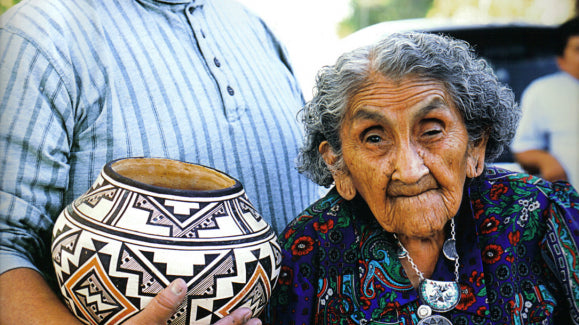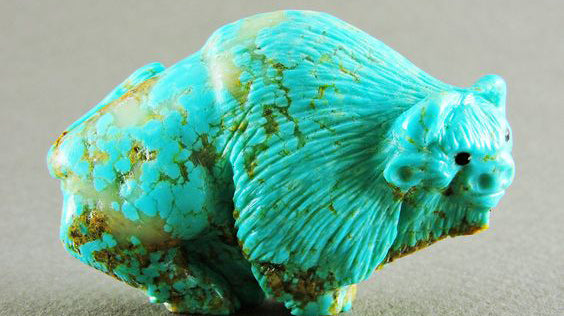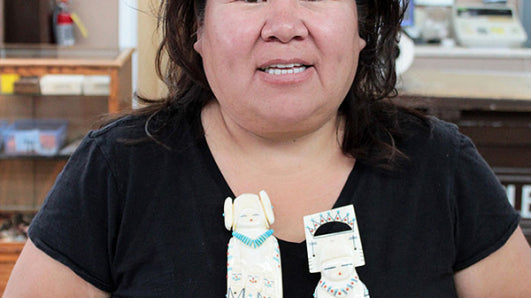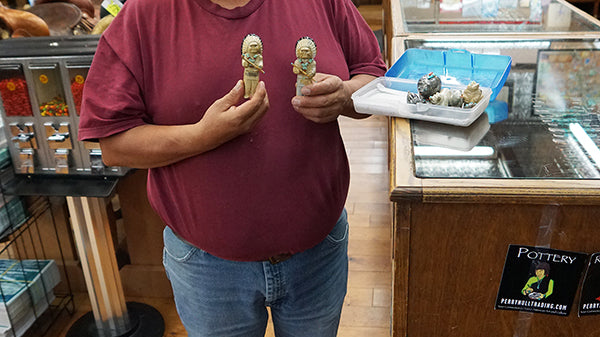Perry Null Trading
Will the Real LL Please Stand Up
Playing the name game is often as simple as figuring out who a piece actually belongs to when it is marked by initials only. Except without a last name there isn’t much to work from. By now most people have learned that LL stands for Larry Laate, not Lavonne Lalio or Navajo Larry Livingston, Linette Laiwakete perhaps or any other fanciful attribution.
How to Get Famous Without Really Trying
There are a handful of famous Zuni jewelers who either never existed or did not make the jewelry they are famous for. How could this happen, you ask? Traders are always under pressure to put names to jewelry they are trying to sell. This also includes point of sale. Collectors can be very insistent and a familiar name is soothing. Traders also had to put names on jewelry they entered in various competitions.
The Confusion of Ike & Austin Wilson
For two men who were not even remotely related these two talented silversmiths have been inextricably intertwined. Several bits in their biographies may have added to the confusion. Both Navajos were born on the same part of the Reservation not far north of Zuni. Exactly where they were from is unclear because censuses list the place the material was collected. They both appear in the Southern Navajo Agency censuses.
Nancy & Ruddell Laconsello, the art of Zuni inlay
When we give a tour in the Trading Post, Perry shows the guests the store and gives them a little speech about our area. He always talks about how lucky he is to come to the Trading Post each day and see all of the beautiful things the artists from this area make.
Ernie Bulow - Researching art of the Southwest Archives
CHILDREN OF THE EARTH
It is unfortunate that the “New Agers” have pre-empted the phrase “Mother Earth” because Native Americans used it to explain to the outside world the relationship they felt toward the living soil that gave birth to virtually everything of value in their world. No Indian enterprise is closer to the germinative spirit than the making of Native American Southwest pottery, created from the earth itself.
Native American Hallmarks
Hallmarks identify the jewelry maker. Many times they are just simple letter stamps. They are not something new, but can be traced back to the 4th Century. Famous American metal smiths used them before we became a country. Paul Revere who warned the Colonial militia “the British are coming” during the American Revolution used a hallmark on his handmade silver pieces in the 1700s.
What do you call those Little Silver People Yeis? Kachinas?
All of the above probably. None are copies of actual Navajo Yeis or Zuni Koko. The question here is, who made what? I have discussed the problems of attribution before, apparently without much success.
Orin Eriacho - Zuni Fetish Carver
Orin Eriacho grew up in the big rock house south of the Zuni river built by Henry Gasper. The home is most associated with the Tsabetsaye family, and linked to the Walelas. Like most Zunis, Orin was surrounded by creativity and family celebrity, but his entry into the art world came out of his own interests.
Milford Nahohai
All Zunis grow up surrounded by art, but Milford Nahohai has probably done better than most. His family tree looks like more like a Christmas display. Wherever the family name came from, as it is written today it is the Navajo word for rodeo [originally chicken pull] a rather exciting event.
Maxx Laate
Maxx Laate comes from a family of famous Zunis. Less well known is that many of the other top carvers are his brothers and nephews because they go by other surnames. They have mostly lived near each other and Maxx’s brother Pernell has been an inspiration and teacher for many of them, though Zunis don’t teach in the way schools do.
Can Your Bear Dance?
Study shows French prehistoric paintings ‘oldest and most elaborate’. Remarkably, agreeing with the radiocarbon dates of the human and animal occupancy, this study confirms that the Chauvet cave paintings are the oldest and the most elaborate ever discovered, challenging our current knowledge of human cognitive evolution”, said the study.
Freddie & Enrique Leekya
In the recent book Leekya: Master Carver of Zuni Puebloby Deborah Slaney, Leekya’s grandchildren don’t get much attention. Of course the book is about Old Man Leekya but the examples of work by the grandsons are not very representative of their extraordinary work.

